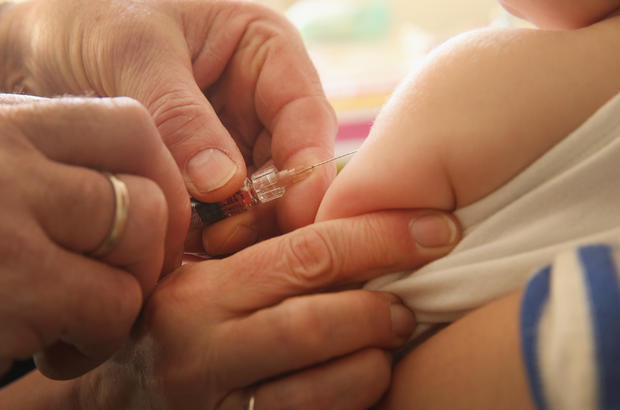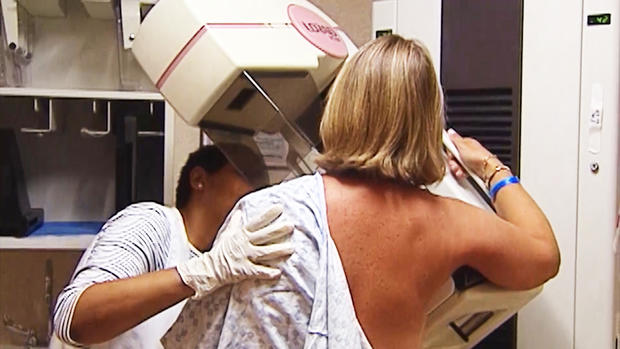Top health searches of 2015
Concern or curiosity about health and medical questions drives millions of people to their computers to search for answers, and 2015 saw a surge in queries about a number of health issues in the news. Some searches were driven by celebrities raising awareness of unfamiliar conditions, while others reflected rising concern about diseases that could strike close to home.
To wrap up the year, the experts at WebMD and Medscape, a medical information site for health care providers, analyzed data on the health and medical terms consumers and physicians searched for on their sites during the past 12 months. Click through to see some of the top health searches of 2015.
Measles
The beginning of the year saw a spike in searches for information about the measles by both consumers and physicians following a multistate outbreak linked to Disneyland in California. The outbreak likely started from a traveler who became infected overseas then visited the amusement park while infectious, according to the Centers for Disease Control and Prevention.
Pockets of unvaccinated children appeared to have fueled the outbreak, sparking controversy over parents opting out of recommended vaccines, and raising a lot of questions about vaccinations and public health among consumers.
"Kids can get really sick from measles. Parents need to understand the risk they're taking not only for their child but for the whole community," Dr. Michael Smith, chief medical editor of WebMD told CBS News. "Despite the concern that runs rampant among some parents, there's really much evidence that shows autism and other developmental disorders are not caused by vaccines."
Smith said that the outbreak and the searches for facts on measles on the internet that followed created awareness of the issue and hopefully led to more parents learning about the importance of vaccines. "This was the first measles outbreak that got this level of attention," he said. "So you have to hope when people see what can actually happen from not being vaccinated it really brings awareness to the risks."
Flu and flu vaccine
Searches for the flu were high in 2015, driven by the fact that the flu vaccine for the 2014/2015 flu season was not as effective as previous years.
"Scientists actually have to predict which strains will be circulating that year several months in advance because that's how long it takes to create the flu vaccine," Smith explained. "Some of that is based on the strains of the flu virus we see circulating in the southern hemisphere because the flu seasons are opposite. Therefore, sometimes if we're off a bit with our predictions, then we're going to be off a bit with the effectiveness of the flu vaccine."
The 2014/2015 flu vaccine was estimated to be only about 18 percent effective -- much lower than average. In addition to all the sickness that occurred because of that, experts worry that such years increase the likelihood that people will opt not to get the flu vaccine in the future.
"On average, about 40 to 50 percent of people get the flu vaccine even though it's recommended for everyone 6 months and older," Smith said. "So many are likely thinking why bother if it's only 18 percent effective, but honestly 18 percent is still pretty huge compared to getting the flu and feeling like you can't get out of bed, or worse, ending up in the hospital."
In a good year, the vaccine is 70 to 90 percent effective, he said, and the 2015/2016 vaccine so far appears to be much more effective than last year's.
Transgender and gender identity
Transgender, gender dysphoria, and gender identity were top searches on WebMD -- especially with Caitlyn Jenner coming forward about her transition.
Other transgender celebrities, including Laverne Cox, spoke out about transgender rights, creating more awareness of the issue.
This is important, experts say, as it is helping break the stigma so often experienced by the transgender community.
"The news of Caitlyn Jenner's transition brought out so many stories of kids that showed some people struggle with gender identity issues really at a young age," Smith said. "Thankfully, because of all the attention being paid to the issue, more kids are coming forward telling us they need our help. We certainly don't want kids, like some we've seen on YouTube, saying they bought medications online to manage their transition. That's just horrifically dangerous."
HIV
Searches for HIV skyrocketed after Charlie Sheen's announcement of his status in November. The actor's disclosure of his HIV diagnosis raised questions for many about how the virus that causes AIDS is transmitted and treated.
Many health experts and news outlets saw this as an opportunity to share the latest findings surrounding HIV/AIDS research and the major advancements science has made over the past three decades in managing the disease. While the diagnosis was once considered a virtual death sentence, today many individuals with HIV can go on to live a normal life span if the infection is caught early and appropriate medication is used.
Lewy Body Dementia
Robin Williams' suicide last year continued to reverberate. The death of the beloved actor shocked his fans and also spurred interest in his diagnosis of Lewy Body Dementia.
"Most of us have heard of Alzheimer's but really few of us have heard of Lewy Body Dementia. That is until Robin Williams' diagnosis, which likely contributed to his taking his own life," Smith said. Williams' widow spoke out about it this fall, saying the condition, as well as his diagnosis with Parkinson's disease, fueled his anxiety and depression.
Most experts estimate that dementia with Lewy bodies -- microscopic protein deposits in the brain -- is the third most common cause of dementia after Alzheimer's disease and vascular dementia, according to the Alzheimer's Association. The disease leads to a decline in thinking, reasoning, and independent function over time.
Physician burnout
Among health care providers in the U.S., physician burnout was a major topic of interest in 2015.
"This is a real problem among American doctors. In fact U.S. physicians are suffering more burnout than even other American workers," Smith said, "and the problem is only getting worse. And burnout, the loss of enthusiasm for work, these are really not traits anyone is looking for in their physician, so it's really troubling that so many of us feel this way."
The causes, he explained, are many. "You have pressures on doctors from insurance companies, pressures to see more patients, the constant struggle of wanting to spend more time with patients but also needing to see more patients in order to keep the revenue of the practice coming in. It's not going to be an easy problem to solve and unfortunately no one has identified that magic pill of sorts to start turning the tide."
Mammograms
Mammograms were a frequent topic of Web searches, especially among physicians seeking to keep up with changing guidelines.
This fall the American Cancer Society revised its recommended age for women at average risk of breast cancer to begin mammograms from 40 to 45, but some specialists pushed back, warning that it could reduce early detection and put lives at risk.
Another change that occurred this year was the recommendation by the U.S. Preventative Task Force that women who have dense breasts may need additional screening. "About half of women are thought to have dense breasts so you're essentially saying that half of women may need additional tests," Smith said. "The Task Force admits there's no standard definition of dense breasts. And more problematic is that even though additional tests do find more cancer, they obviously find more false positives, too."
He pointed out that as confusing as changing recommendations for cancer screenings may be for consumers, physicians, too, often seek out advice and discussion on how to provide the best care for their patients.
Common health questions
This video from WebMD and Medscape highlights the most-searched health and medical terms of 2015.








